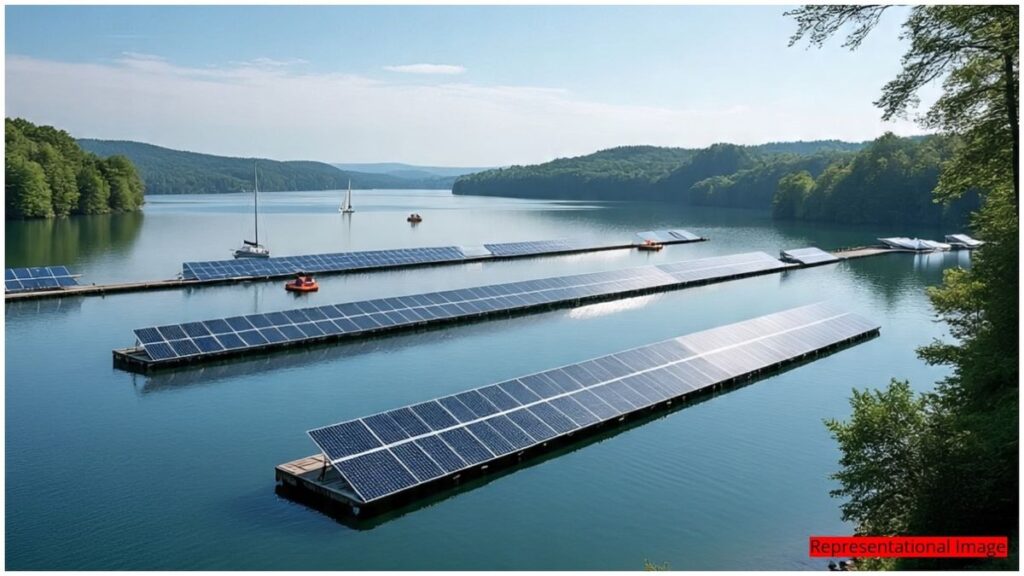While Rachenahalli and Doddabommasandra lakes may soon host floating solar panels, the city’s earlier attempt at Yelahanka remains stuck with no bidders showing interest.
Karnataka’s experiment with floating solar power has once again hit choppy waters. The state’s much-talked-about project at the Yelahanka Combined Cycle Power Plant (YCCPP), launched with fanfare in 2022, is still languishing without a single bidder.
Also Read:Bengaluru: Two lakes in Yelahanka to host floating solar power project
The 1.1MW pilot, proposed by Karnataka Power Corporation Ltd (KPCL), aimed to transform the raw water pond at its Yelahanka facility into Bengaluru’s first floating solar photovoltaic (FSPV) plant. Despite its promise of generating over 2.5 million units annually, the small scale and limited financial viability made the project unattractive for developers. Even KPCL’s condition of using anti-glare panels due to proximity to the airport did little to spark interest.
Also Read:Trees in Karnataka to get unique IDs with geo-tagging pilot at IISc
Now, the state is looking to breathe new life into its clean energy agenda through lakes. The Karnataka Renewable Energy Development Ltd (KREDL), in collaboration with the civic body’s climate action cell and the Karnataka Tank Conservation and Development Authority (KTCDA), is exploring floating solar parks at Rachenahalli and Doddabommasandra lakes. Though both water bodies together could support nearly 20MW, officials say the pilot will begin modestly with just 1MW.
Also Read:Bengaluru emerges as India’s hospitality growth leader with 29.4% RevPAR surge in Q2 2025
This is not Karnataka’s first floating solar setback. A Rs 7.7-crore project at Bugudanahalli lake in Tumakuru, once touted as the state’s pioneering effort, collapsed due to uncertainty over water retention. With Yelahanka now under review and new proposals under planning, Bengaluru’s solar dreams remain afloat—but only just.

